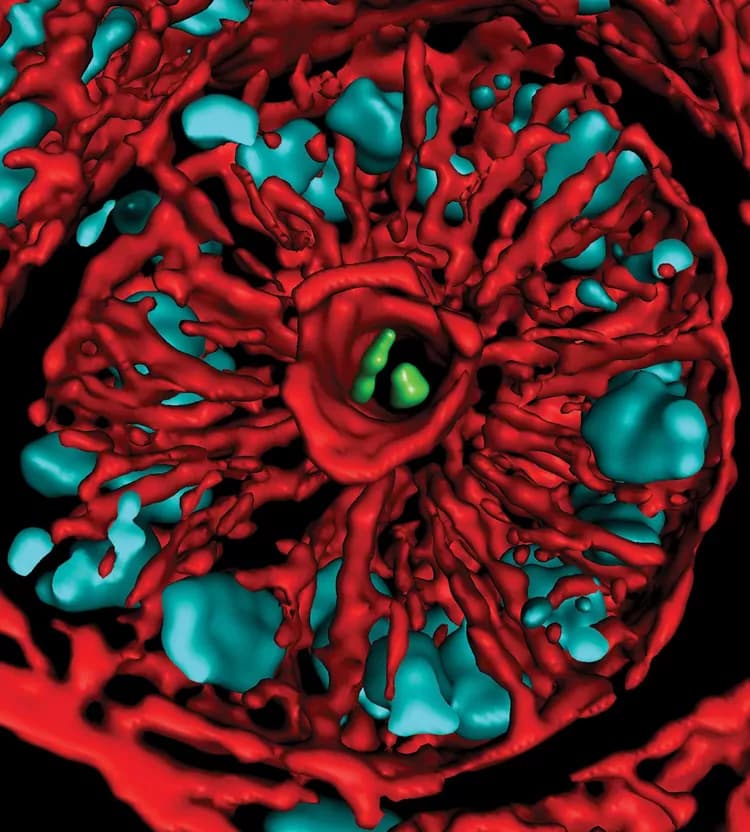
Gut Bacteria Metabolism May Factor Into Hypertension
One in three American adults suffers from high blood pressure, or hypertension. The disease can be passed down in families, and certain lifestyle factors such as smoking, high-sodium diets, and stress can increase the risk. In recent years, scientists have discovered that certain gut bacteria may contribute to hypertension, as well.
In a few studies, when gut bacteria were killed off with antibiotics, patients with hypertension saw a drop in blood pressure. And when gut bacteria were transplanted from hypertensive people into normal mice, they developed high blood pressure. The evidence is compelling, but until now, scientists have not identified a mechanism to explain how bacteria increase blood pressure.
Researchers from the University of Illinois and Brown University are pursuing a promising lead. Jason Ridlon, an assistant professor in the Department of Animal Sciences at U of I, first discovered the gene for an enzyme in certain bacteria that changes cortisol, a steroid hormone, into another steroid known as an androgen.
Ridlon worked with endocrinologist David Morris at Brown and found that when bacteria break that androgen down further, the end product, a molecule called a GALF, disrupts a process that regulates sodium transport out of human kidney cells. When that happens, sodium builds up in cells, and blood pressure rises.
To maintain normal blood pressure, a particular receptor has to bind with a molecule called aldosterone and then move into the cell nucleus. That sparks a cascade of reactions whose end-product is a protein that manages normal sodium and potassium transport into and out of the cell. But the receptor can be fooled, binding to cortisol instead of aldosterone. If that happens, as it does in rare individuals with a disease called apparent mineralocorticoid excess (AME), the cascade of reactions goes into hyperdrive. Sodium is imported faster than it can be exported, and the cell begins to swell into a dangerous hypertensive state.
In normal individuals, an enzyme called 11βHSD2 acts as the guardian of that receptor, keeping cortisol from binding by changing it to cortisone. GALFs -- and there are a number of them -- stop 11βHSD2 from working. Cortisol floods the receptor binding sites, and hypertension ensues as previously described.
"There are probably multiple mechanisms through which gut bacteria can affect hypertension, but this is one that needs to be pursued," Ridlon says. He and Morris explore the idea in depth in a new article published in the journal Steroids.
From a different research effort, Ridlon has found that not all gut bacteria metabolize cortisol in the same way, or generate GALFs.
"Two people might have same amount of the bacterium Clostridium scindens, for example, but one person might have the type that has the pathway for generating these steroids. You can only tell by quantifying the genes, but we have to find them first," Ridlon says.
In a recent article, published in the Journal of Lipid Research, he does just that, reporting the genes involved in GALF formation in Butyricicoccus desmolans.
"The next step is trying to see if these pathways correlate in patients that have certain forms of hypertension," Ridlon says. "Are there higher abundances of these genes?"
The hope is that one day the research will lead to a drug therapy to combat hypertension. Ridlon says if they are better able to understand what the bacteria are doing, it would be possible to develop inhibitors of the enzymes that produce GALFs in these bacteria. "It would be great if we could find a targeted solution instead of wiping out everything with antibiotics," he says.
Related Articles
Test Your Knowledge
Asked by users
Related Centers
Related Specialties
Related Physicians
Related Procedures
Related Resources
Join DoveHubs
and connect with fellow professionals

0 Comments
Please log in to post a comment.